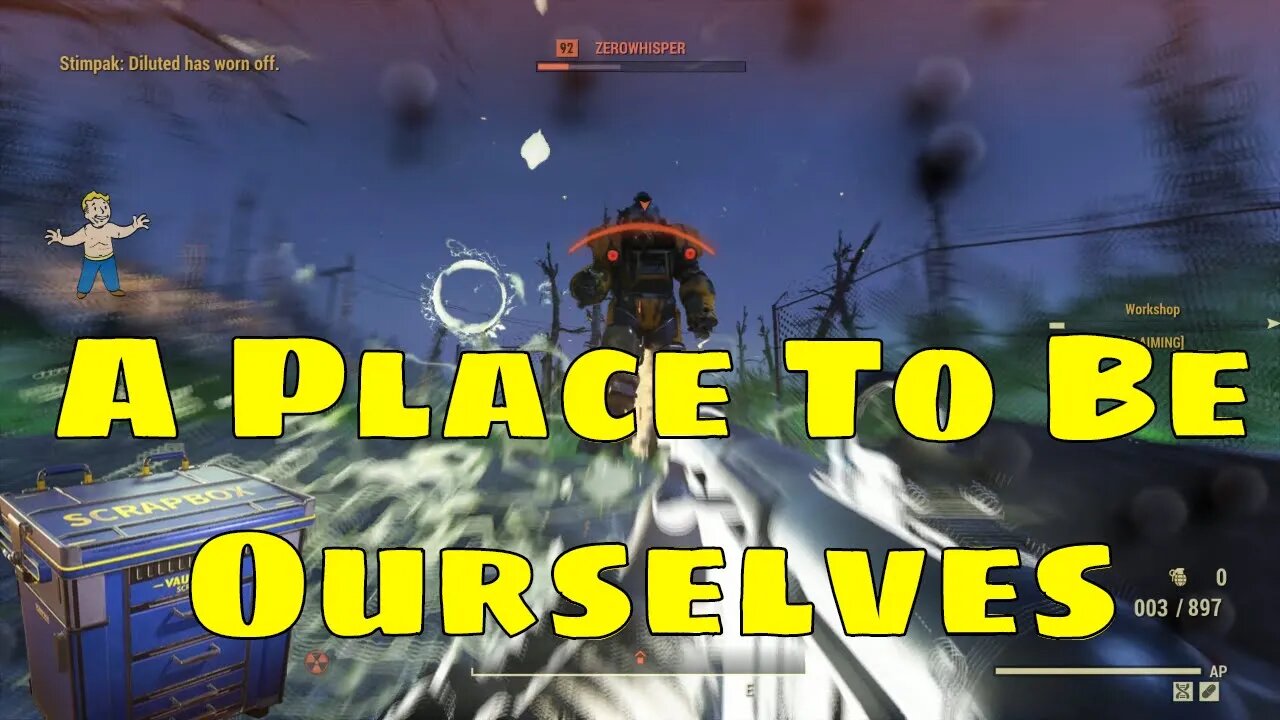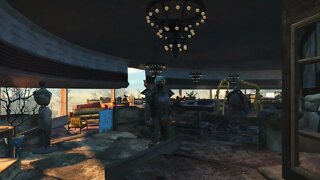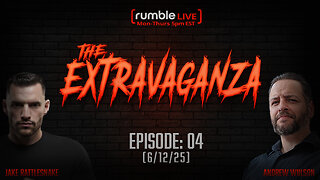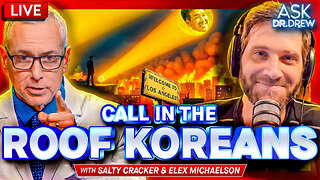Premium Only Content

A Place to Be Ourselves In Fallout 76 With Gamma Guns
Beyond the launch of Fallout 76, the game continued to receive further development support from Bethesda to improve or alter its design, combat technical issues, and take action against users seen as cheating. However, many of the decisions undertaken by the publisher to implement these aims garnered disgruntlement and criticism from players and gaming journalists.
In December 2018, the prices of Fallout 76's in-game cosmetics received increasingly negative attention from players for being too expensive, particularly in regards to items added to the game's "Atom Shop" for the 2018 holiday season. Eurogamer noted how a set of Santa Claus outfits and a large sign cost $20 and $14 worth of in-game currency (called Atoms), respectively, with players arguing similar pricing was enough to buy Fallout 4's season pass with all add-ons. In the spring and summer of 2019, the game also introduced items that managed a player's surplus inventory and improved the quality of their weapons, both of which could be acquired through spending Atoms. However, the implementation drew criticism from players, who felt that it favored those that paid for Atoms with real money instead of gaining them through hours of playtime.Additional items released later that also provided gameplay advantages and were buyable with Atoms drew similar criticism, with Polygon writing the in-game store had "slowly warped over time", particularly as it had initially only offered cosmetic items for sale.
In the weeks following release, Bethesda banned numerous players from the game for using mods and exploiting technical issues for various purposes, such as duplicating in-game items and gaining access to the game's developer room, an off-limits area created for testing purposes which contained copies of every item. Many of these players found that their accounts had been closed without warning, and were emailed by Bethesda asking them to write an essay explaining why cheating and using mod software was damaging to online video games. Bethesda's reaction received backlash from users as many felt they had been unfairly targeted for using mods to fix graphical or technical issues with the game, rather than with the intention to gain unfair advantages. Fallout 76's in-game currency also became affected by hackers due to the mass duplication of items, much of which were sold using unofficial methods outside of the game.Various players took it upon themselves to combat item duplication by hunting and killing any player-characters suspected of using them, despite a number being in fact innocent. Other examples of hacking were achieved in Fallout 76; for example, in December 2019 alone, users succeeded in incorporating numerous NPCs and objects into the game, some of which had been taken from Fallout 4, while later in the month hackers managed to open other online players' inventories and steal hundreds of their items. While Bethesda took action to combat these, many users called on the publisher to implement more rigorous anti-cheat protection for the game and to be more forceful in banning the accounts of those caught hacking.
On October 23, 2019, Bethesda announced it would be selling a premium subscription service for Fallout 76, titled "Fallout 1st", priced at $12.99 per month or $99.99 per year. The subscription allows payees to play the game in a private online server (either alone or in a group of up to seven people, who do not have to be subscribers), as well as introducing new content such as a box allowing unlimited storage for crafting materials, a placeable fast travel system with supplementary supplies, 1650 atoms per month, and exclusive cosmetic items. The choice to release a subscription model for the game drew criticism and was considered an audacious move from Bethesda, particularity as content like private worlds had been requested before the game's launch by players but was instead now included behind a paywall, while some also noted that subscription services for exclusive content in full-priced games were being shunned in favor of other models. Kotaku contested the high price, writing how the base game, while having improved in time through new content following its poor launch, still suffered from various problems, and additionally was continuing to be sold for a discounted price at most retailers.
-
 11:07:18
11:07:18
Lorespade
1 year agoLorespade's Adventure In No Man's Sky
39 -
 2:08:00
2:08:00
Roaming3
3 years agoFALLOUT 4 Playing with the mods
24 -
 LIVE
LIVE
Robert Gouveia
2 hours agoSenator GOES NUTS on Noem! Trump vs. Newsom in Court! Tim Walz Obliterated!
2,124 watching -
 1:18:01
1:18:01
Nick Freitas
1 hour agoCan Democrats Win Back Young Men?
161 -
 UPCOMING
UPCOMING
Quite Frankly
8 hours ago"Trade War, No Kangz, Big Beautiful Riots" ft Dr. Robin McCutcheon 6/12/25
1.61K -
 LIVE
LIVE
SpartakusLIVE
1 hour agoAre they really going to end WZ?? || Duos w/ @GloryJean
394 watching -
 26:40
26:40
Uncommon Sense In Current Times
1 hour agoWoke Jesus? Exposing Progressive Ideology in the Church | Lucas Miles
2 -
 1:06:07
1:06:07
TheCrucible
1 day agoThe Extravaganza! (6/12/25)
77.3K18 -
 1:27:44
1:27:44
Kim Iversen
2 hours agoDAYS FROM WAR?? U.S. Quietly Pulls Personnel Before Possible Iran Strike | Inside Daily Life For Gazans
27.3K20 -
 1:15:05
1:15:05
Dr. Drew
6 hours agoSalty Cracker: LA Weirdos Burn Cars, Suddenly Stop Caring About Toxic Fumes or The Environment, As Residents Beg For Roof Korean Relief w/ Elex Michaelson – Ask Dr. Drew
20.1K12